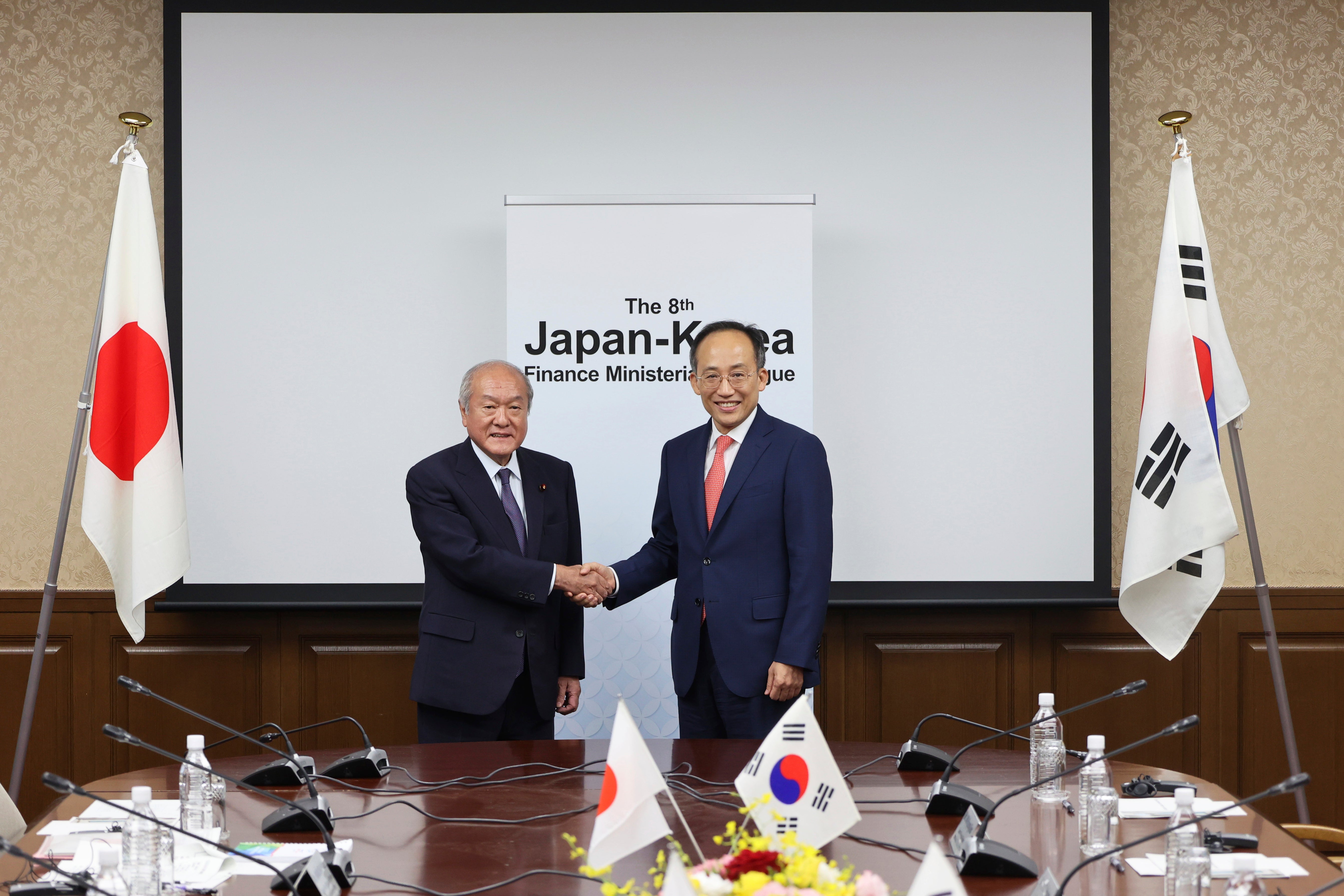Finance ministers of Japan and South Korea agree to resume currency swap agreement as ties warm
Japan and South Korea have agreed to revive a currency swap agreement for times of crisis

Your support helps us to tell the story
From reproductive rights to climate change to Big Tech, The Independent is on the ground when the story is developing. Whether it's investigating the financials of Elon Musk's pro-Trump PAC or producing our latest documentary, 'The A Word', which shines a light on the American women fighting for reproductive rights, we know how important it is to parse out the facts from the messaging.
At such a critical moment in US history, we need reporters on the ground. Your donation allows us to keep sending journalists to speak to both sides of the story.
The Independent is trusted by Americans across the entire political spectrum. And unlike many other quality news outlets, we choose not to lock Americans out of our reporting and analysis with paywalls. We believe quality journalism should be available to everyone, paid for by those who can afford it.
Your support makes all the difference.Japan and South Korea agreed Thursday to revive a currency swap agreement for times of crisis, in the latest sign of warming ties as the countries work to smooth over historical antagonisms.
Japanese Finance Minister Shunichi Suzuki announced the agreement after meeting with his South Korean counterpart, Choo Kyungho. It was the first time the two countries have held annual financial talks in seven years, though Suzuki and Choo also met in South Korea in May.
Suzuki told reporters that the 3-year currency swap agreement would help reinforce trust in the financial stability of the two countries as a fallback in an emergency. But he emphasized that Japan is fully prepared to deal with fluctuations in the Japanese yen, which has weakened sharply against the U.S. dollar in the past year.
The $10 billion swap arrangement expired in 2015 and had not been renewed. Largely symbolic, it allows the South Korean and Japanese central banks to exchange currencies for each country's reserves of U.S. dollars to provide extra liquidity, or cash supplies, in case of a crisis.
The two major Asian economies, both U.S. allies, have recently mended ties as they contend with challenges posed by China and North Korea, despite tensions over issues left over from Japan’s 35-year occupation of the Korean Peninsula before and during World War II.
From July 21, Japan plans to reinstate South Korea as a preferred nation with fast-track trade status. That will essentially end a four-year trade dispute that began in July 2019 when Japan removed South Korea from its “white list” of countries given fast-track approvals in trade as ties deteriorated over compensation for Japanese wartime actions.
Japan’s tightening of trade controls against Seoul was in apparent retaliation for South Korean court rulings in 2018 that ordered Japanese companies to compensate Korean workers for abusive treatment and forced labor during World War II.
Japan also tightened export controls on key chemicals used by South Korean companies to make semiconductors and displays, prompting South Korea to file a complaint with the World Trade Organization and remove Japan from its own list of countries with preferred trade status.
South Korean President Yoon Suk Yeol and Japanese Prime Minister Fumio Kishida met in March in the first formal summit between the two countries since 2015.
Japan colonized the Korean Peninsula between 1910 and 1945, imposing Japanese names and language on Koreans and conscripting many into forced labor or prostitution in military brothels before and during World War II. Japan gave $800 million to South Korea’s then-military-backed government under a 1965 accord to normalize relations which was mainly used on economic development projects driven by major South Korean companies. A semi-government fund set up by Tokyo offered compensation to former “comfort women” when the government apologized in 1995, but many South Koreans believe the Japanese government should take more direct responsibility for the occupation.
The two sides also have a longstanding territorial dispute over a group of islands controlled by South Korea but claimed by Japan.